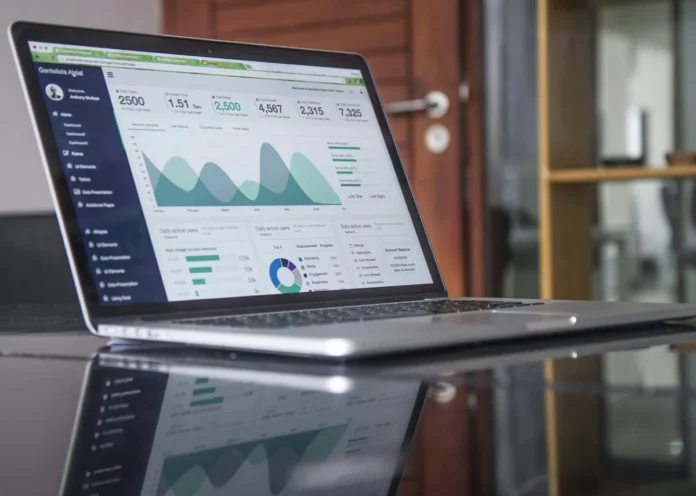Introduction
Imagine waking up one day with complete control over your money—no more surprise bills, endless debt cycles, or nagging worries about retirement. That’s the promise of mastering accounting for personal finance. In a world where inflation bites harder and economic uncertainties loom, understanding how to track, manage, and grow your funds isn’t just smart; it’s essential. According to recent surveys, over half of Americans worry daily about their finances, yet simple accounting practices can flip the script toward stability and growth.
This comprehensive guide dives deep into accounting for personal finance, blending timeless principles with fresh insights tailored for 2025. Whether you’re a young professional starting out or someone reassessing mid-career goals, we’ll cover everything from basics to advanced strategies. By the end, you’ll have actionable steps to build a solid financial foundation. Let’s get started.
What is Accounting for Personal Finance?
At its core, accounting for personal finance involves systematically recording, analyzing, and reporting your income, expenses, assets, and liabilities. Unlike business accounting, which focuses on profits and compliance, personal financial accounting emphasizes individual goals like saving for a home or retiring comfortably.
Think of it as your money’s GPS. It helps you navigate daily decisions while keeping an eye on long-term destinations. Key elements include tracking cash flow, balancing budgets, and preparing for taxes. As one expert notes, applying basic accounting skills to everyday life can reduce stress and build wealth over time.
In practice, this means categorizing transactions—rent as a fixed expense, coffee runs as discretionary spending—and reviewing them regularly. Semantic variants like “personal money management” or “household financial tracking” all point to the same idea: gaining clarity over your fiscal health.
Why Accounting Matters for Your Personal Finances
Why bother with spreadsheets and apps when life is busy enough? The answer lies in empowerment. Proper accounting for personal finance prevents overspending, spots leaks in your budget, and maximizes savings. For instance, studies show that individuals who track expenses save up to 20% more than those who don’t.
Beyond savings, it builds resilience. In 2025, with rising costs for housing and healthcare, knowing your net worth—assets minus liabilities—can guide smarter choices. It also aids in goal-setting, like funding a child’s education or investing in stocks. As we’ll discuss later in the tools section, modern software makes this effortless.
Moreover, ignoring accounting leads to pitfalls. Nearly 41% of U.S. adults carry credit card debt, often due to unmonitored habits. By contrast, those who apply accounting principles report less anxiety and greater financial freedom.
Basic Accounting Principles for Individuals
You don’t need a degree to grasp these fundamentals. Start with the accrual vs. cash basis: Cash tracks money when it moves, ideal for simple personal use; accrual records when earned or incurred, better for complex finances.
Key principles include:
- Consistency: Stick to one method for accurate comparisons.
- Materiality: Focus on significant transactions that impact decisions.
- Matching: Align expenses with related income, like deducting work costs from salary.
- Conservatism: Be cautious with estimates to avoid overoptimism.
These are adapted from business accounting but simplified for personal use. For example, the economic entity assumption treats your finances separately from family or side gigs. Variants like “prudent financial recording” ensure reliability.
In daily life, apply the time value of money—$100 today is worth more than tomorrow due to potential earnings. This principle underscores saving early for compound growth.
Setting Up Your Personal Accounting System

Getting started is simpler than you think. First, gather documents: bank statements, pay stubs, and bills. Choose a method—manual ledger, spreadsheet, or app.
Steps to set up:
- Open dedicated accounts: Separate checking for bills, savings for emergencies.
- Select software: Options like Excel for basics or apps for automation.
- Create categories: Income (salary, investments), expenses (needs vs. wants).
- Set tracking rules: Log daily or weekly to build habits.
- Review monthly: Adjust based on insights.
A popular approach is the 50/30/20 rule: 50% needs, 30% wants, 20% savings/debt. This system evolves; as discussed in budgeting later, tailor it to your lifestyle.
For 2025, integrate digital tools early. Link bank accounts for real-time updates, reducing errors.
Budgeting: The Cornerstone of Personal Finance Accounting
Budgeting is where accounting shines. It’s not about restriction but allocation—ensuring every dollar has a purpose. Zero-based budgeting assigns all income to categories until zero remains, forcing intentionality.
Best methods for 2025:
- Envelope system: Cash in envelopes for categories; once empty, stop spending.
- Pay yourself first: Prioritize savings before bills.
- 50/30/20: Balanced and flexible.
Track variances: If groceries exceed the budget, analyze why. Tools like templates help visualize. Remember, budgets aren’t static; review quarterly.
Semantic terms like “financial planning allocation” highlight its role in overall accounting for personal finance.
Tracking Income and Expenses
Accurate tracking is the heartbeat of personal financial accounting. Manual methods work, but apps automate categorization.
Tips:
- Categorize wisely: Fixed (mortgage), variable (entertainment), irregular (repairs).
- Use tech: Apps pull data from banks.
- Monitor trends: Spot seasonal spikes.
In 2025, AI-driven insights predict future spending. This prevents surprises, like holiday overspend.
Link back to principles: Matching ensures expenses tie to income sources.
Managing Debt and Assets
Debt isn’t evil, but unmanaged, it cripples. Accounting helps by calculating debt-to-income ratios—aim under 36%.
Strategies:
- Snowball method: Pay the smallest debts first for momentum.
- Avalanche: Tackle high-interest first to save money.
For assets, track appreciation: Home value, investments. Net worth statements, quarterly, show progress.
As in the tax sections ahead, some debt (mortgages) offers deductions.
Tax Accounting for Personal Finance
Taxes intertwine with accounting. Track deductible expenses: Charitable donations, home office costs.
Tips for 2025:
- Max retirement contributions: Reduce taxable income.
- Harvest losses: Offset investment gains.
- Use HSAs/FSAs: Tax-free for health.
File accurately; errors cost penalties. Software integrates tax prep.
Investing and Accounting for Returns
Investing builds wealth, but accounting tracks performance. Monitor ROI: (Gain/Cost) x 100.
Basics:
- Diversify: Stocks, bonds, real estate.
- Track costs: Fees eat returns.
- Rebalance annually: Maintain allocation.
Compound interest is key—start early. As per the basics, time value amplifies this.
Tools and Software for Personal Finance Accounting
2025 offers robust options:
| Tool | Best For | Cost |
|---|---|---|
| Mint | Free tracking | Free |
| YNAB | Zero-based budgeting | Subscription |
| Quicken | Comprehensive | Paid |
| PocketGuard | Debt management | Freemium |
Choose based on needs. Integrate with banks for seamless data.
Common Mistakes and How to Avoid Them
Avoid pitfalls like:
- No budget: Leads to overspending.
- Ignoring emergencies: Build 3-6 months’ savings.
- High debt: Pay minimums only.
Fix by regular reviews.
Advanced Topics in Personal Finance Accounting
Dive deeper: Estate planning, crypto tracking, multi-currency for travelers. Use advanced software for simulations.
In 2025, AI forecasts aid decisions.
GET MORE KNOWLEDGE ABOUT FINANCE BY VISITING: FTECH
Conclusion
Mastering accounting for personal finance transforms chaos into control. From basic principles to advanced tools, these strategies pave the way to financial independence. Start small—set up a budget today—and watch your net worth grow.
Ready to take action? Download a free budgeting template from our site and subscribe for weekly tips. Your future self will thank you.
To get more information about Personal Finance, visit: FTECHZOOM
FAQ
What is the best way to start accounting for personal finance?
Begin by tracking income and expenses for a month using a simple app or spreadsheet. Categorize everything and set a basic budget based on the 50/30/20 rule.
How does accounting help with taxes in personal finance?
It ensures you track deductible expenses and contributions, reducing your taxable income. Tools can generate reports for easy filing.
What are common mistakes in personal finance accounting?
Overspending without tracking, neglecting emergency funds, and carrying high-interest debt are top issues. Regular reviews prevent them.
Which tools are recommended for 2025?
Apps like YNAB for budgeting and Mint for tracking stand out for their user-friendly features and integration.
How can investing fit into personal financial accounting?
Track investments separately, monitor returns, and rebalance portfolios. Use principles like diversification to align with your overall finances.

